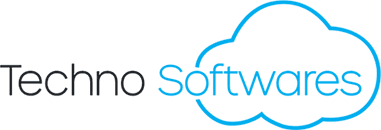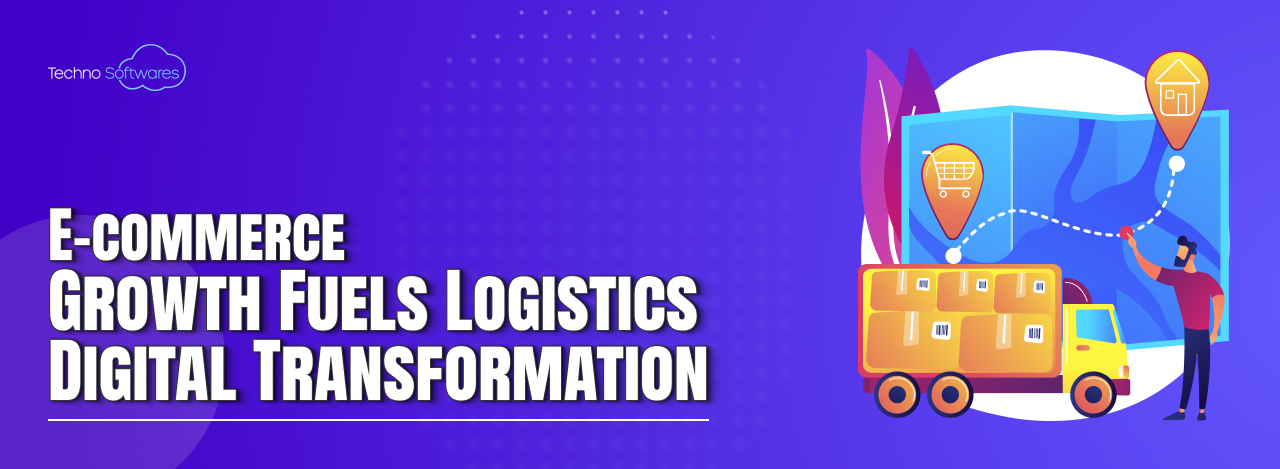The Benefits of Route Optimization Software in Logistics
In the ever-evolving landscape of logistics, the importance of route optimization software cannot be overstated. As we navigate the complexities of supply chain management, we find ourselves increasingly reliant on technology to streamline operations and enhance efficiency. Route optimization software serves as a critical tool that enables logistics companies to determine the most efficient paths for their deliveries, thereby reducing costs and improving service levels.
By leveraging advanced algorithms and real-time data, these solutions empower us to make informed decisions that can significantly impact our bottom line. As we delve deeper into the world of logistics, we recognize that the challenges we face are multifaceted. From fluctuating fuel prices to increasing customer expectations, the pressure to deliver goods promptly and cost-effectively is ever-present.
Route optimization software addresses these challenges head-on by providing us with the ability to analyze various routing scenarios and select the best options available. This not only enhances our operational efficiency but also positions us to respond swiftly to changing market demands. In this article, we will explore the myriad benefits of route optimization software, focusing on its role in cost reduction, efficiency improvement, real-time tracking, environmental sustainability, integration with fleet management systems, customization, scalability, and real-world success stories.
Key Takeaways
- Route optimization software in logistics helps in planning the most efficient routes for delivery vehicles, saving time and resources.
- Smart routing solutions can lead to significant cost reduction by minimizing fuel consumption and vehicle wear and tear.
- Efficiency in logistics operations can be improved by using route optimization software to streamline delivery schedules and reduce idle time.
- Real-time tracking and monitoring capabilities of routing solutions enable logistics companies to keep a close eye on their fleet and make necessary adjustments on the go.
- Optimal routing not only saves time and money, but also minimizes environmental impact by reducing carbon emissions and fuel consumption.
Cost Reduction through Smart Routing Solutions
One of the most compelling advantages of route optimization software is its ability to drive significant cost reductions. As we analyze our logistics operations, we often find that transportation costs represent a substantial portion of our overall expenses. By utilizing smart routing solutions, we can minimize these costs through more efficient route planning.
The software takes into account various factors such as distance, traffic patterns, and delivery windows, allowing us to identify the most economical routes for our fleet. Moreover, the financial benefits extend beyond just fuel savings. By optimizing our routes, we can reduce vehicle wear and tear, lower maintenance costs, and even decrease labor expenses associated with longer delivery times.
As we implement these smart routing solutions, we often see a direct correlation between optimized routes and improved profitability. The ability to deliver goods faster and more efficiently not only enhances customer satisfaction but also strengthens our competitive edge in the market.
Efficiency Improvement in Logistics Operations

Efficiency is the lifeblood of any successful logistics operation, and route optimization software plays a pivotal role in enhancing this efficiency. As we strive to improve our operational workflows, we find that traditional routing methods often fall short in meeting the demands of modern logistics. With route optimization software, we can automate the planning process, allowing us to allocate resources more effectively and reduce manual errors.
The software’s ability to analyze vast amounts of data in real time enables us to make quick adjustments to our routes based on changing conditions. For instance, if an unexpected traffic jam occurs or a delivery window shifts, we can swiftly reroute our vehicles to ensure timely deliveries. This agility not only improves our service levels but also fosters a culture of responsiveness within our organization.
As we embrace these efficiency improvements, we often discover that our teams can focus on higher-value tasks rather than getting bogged down in logistical minutiae.
Real-time Tracking and Monitoring Capabilities
In today’s fast-paced logistics environment, real-time tracking and monitoring capabilities are essential for maintaining transparency and accountability. Route optimization software provides us with the tools necessary to track our shipments at every stage of the delivery process. This visibility allows us to keep our customers informed about their orders and enhances our ability to manage expectations effectively.
As we utilize real-time tracking features, we can proactively address potential issues before they escalate into significant problems. For example, if a vehicle is running behind schedule due to unforeseen circumstances, we can communicate with customers promptly and offer alternative solutions. This level of transparency not only builds trust with our clients but also empowers us to make data-driven decisions that enhance overall operational performance.
By integrating real-time tracking into our logistics strategy, we position ourselves as leaders in customer service within the industry.
Minimizing Environmental Impact through Optimal Routing
As stewards of the environment, we recognize the importance of minimizing our carbon footprint in logistics operations. Route optimization software plays a crucial role in achieving this goal by enabling us to identify the most eco-friendly routes for our deliveries. By reducing unnecessary mileage and optimizing fuel consumption, we can significantly decrease greenhouse gas emissions associated with transportation.
Moreover, many route optimization solutions provide insights into alternative fuel options and electric vehicle integration. As we explore these avenues, we find that not only do they contribute to environmental sustainability, but they also align with the growing consumer demand for eco-conscious practices. By adopting optimal routing strategies that prioritize sustainability, we not only fulfill our corporate social responsibility but also enhance our brand reputation among environmentally conscious consumers.
Integration with Fleet Management Systems

Enhanced Fleet Performance
By combining route optimization with fleet management capabilities, we can monitor vehicle performance metrics such as fuel efficiency and maintenance needs in real-time. This holistic approach enables us to identify trends and make proactive adjustments that enhance overall fleet performance.
Operational Efficiency and Cost Savings
As we leverage this integration, we often find that it leads to improved operational efficiency and reduced costs across the board. By optimizing our logistics operations, we can better serve our customers and stay ahead in the competitive market.
Customization and Scalability of Routing Solutions
In our pursuit of excellence in logistics operations, we understand that one size does not fit all when it comes to routing solutions. Customization is key to ensuring that our route optimization software aligns with our unique business needs and operational requirements. Many modern solutions offer customizable features that allow us to tailor routing parameters based on factors such as delivery types, vehicle capacities, and customer preferences.
Scalability is another essential consideration as we grow and evolve as a business. As we expand our operations or enter new markets, having a routing solution that can scale alongside us is crucial for maintaining efficiency and effectiveness. By investing in customizable and scalable routing solutions, we position ourselves for long-term success while ensuring that our logistics operations remain agile and responsive to changing demands.
Case Studies and Success Stories from Techno Softwares’ Clients
To illustrate the transformative impact of route optimization software in logistics, let us explore some compelling case studies from Techno Softwares’ clients who have successfully implemented these solutions. One notable example involves a regional distribution company that faced challenges with rising transportation costs and inefficient routing practices. By adopting Techno Softwares’ route optimization solution, they were able to reduce their fuel expenses by 20% within just three months while improving on-time delivery rates by 15%.
This success not only enhanced their profitability but also strengthened their relationships with key customers. Another success story comes from a national e-commerce retailer that struggled with managing last-mile deliveries across multiple urban areas. By leveraging Techno Softwares’ advanced routing algorithms, they optimized their delivery routes based on real-time traffic data and customer preferences.
As a result, they achieved a remarkable 30% reduction in delivery times while simultaneously decreasing their carbon emissions by implementing eco-friendly routing options. These case studies exemplify how route optimization software can drive tangible results for logistics companies across various sectors. In conclusion, as we reflect on the myriad benefits of route optimization software in logistics, it becomes clear that these solutions are indispensable for navigating the complexities of modern supply chain management.
From cost reduction and efficiency improvement to real-time tracking and environmental sustainability, route optimization software empowers us to enhance our operations while meeting the evolving demands of customers and stakeholders alike. As we continue to embrace technology in our logistics strategies, we position ourselves for success in an increasingly competitive landscape.
In a related article on Techno Softwares’ blog, they discuss how they can develop smart routing solutions to reduce costs and improve efficiency in logistics. By utilizing their expertise in crafting custom solutions, such as email templates for GoHighLevel or hiring a Node.js developer, Techno Softwares can create tailored routing software that meets the specific needs of their clients. This approach aligns with the benefits highlighted in the article on route optimization software, showcasing how innovative technology can revolutionize the logistics industry. To learn more about Techno Softwares’ capabilities in developing custom solutions, visit their blog here.
FAQs
What is route optimization software?
Route optimization software is a tool used in logistics and transportation management to determine the most efficient and cost-effective routes for delivery vehicles. It takes into account various factors such as traffic, weather, vehicle capacity, and delivery time windows to create optimized routes.
What are the benefits of using route optimization software in logistics?
Using route optimization software in logistics can lead to reduced fuel costs, lower vehicle maintenance expenses, improved on-time delivery rates, and increased overall efficiency. It also helps in reducing carbon emissions and minimizing the environmental impact of transportation operations.
How can Techno Softwares develop smart routing solutions?
Techno Softwares can develop smart routing solutions by leveraging advanced algorithms and machine learning techniques to analyze and optimize delivery routes. They can also integrate real-time data from GPS and traffic monitoring systems to continuously update and improve routing decisions. Additionally, they can customize the software to meet the specific needs and constraints of their clients’ logistics operations.
How can smart routing solutions developed by Techno Softwares reduce costs and improve efficiency?
Smart routing solutions developed by Techno Softwares can reduce costs and improve efficiency by minimizing the distance traveled, reducing idle time, and optimizing vehicle capacity utilization. This leads to lower fuel consumption, decreased vehicle wear and tear, and faster delivery times, ultimately resulting in cost savings and improved operational performance for logistics companies.





